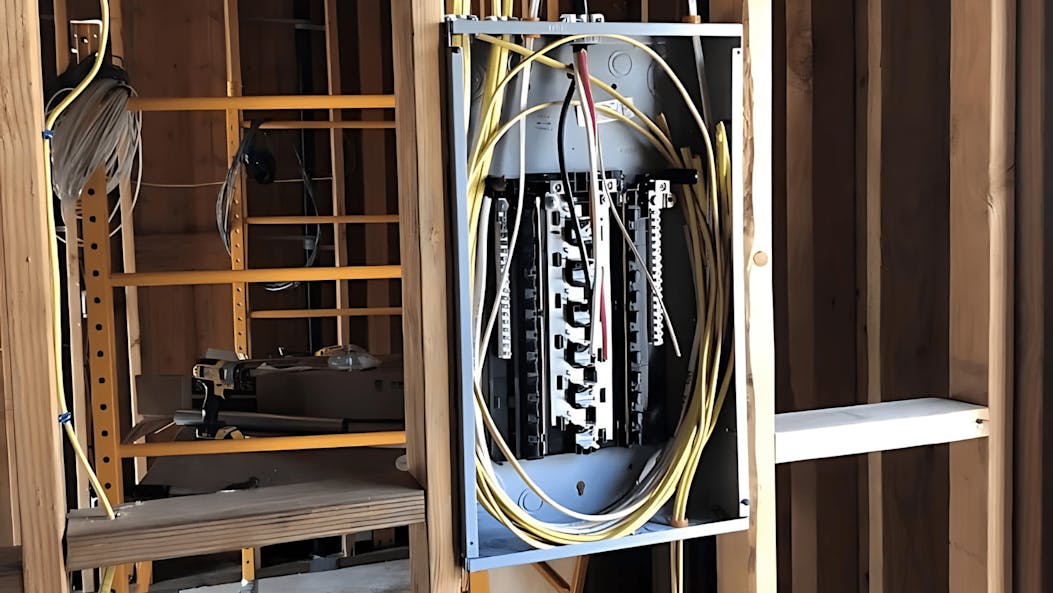
The Importance of Rewiring and Evaluating Electrical Needs




Hiring a Professional Electrician
When it comes to rewiring or evaluating your electrical needs, it's crucial to hire a licensed and experienced professional electrician. A qualified electrician will have the knowledge and expertise to ensure that the work is performed safely, efficiently, and in compliance with all relevant codes and regulations.
Additionally, a professional electrician can provide valuable advice and recommendations tailored to your specific needs and situation. They can suggest energy-efficient solutions, recommend upgrades or modifications to improve functionality, and ensure that your electrical system is future-proof and capable of handling any potential expansions or additions.
In conclusion, rewiring and evaluating your electrical needs are essential steps in ensuring the safety, efficiency, and functionality of your home or business. By addressing outdated wiring and properly assessing your electrical requirements, you can enjoy peace of mind, increased property value, and a reliable electrical system that meets your current and future needs. Don't hesitate to consult with a professional electrician to ensure that your electrical system is up to par and ready to support your lifestyle or business operations.
Evaluating Electrical Needs for Renovations and Additions
If you're planning a renovation or addition to your home or business, it's crucial to have your electrical needs evaluated by a professional electrician. This evaluation should take into account the following factors:
Intended Use: The intended use of the renovated or added space will determine the electrical requirements, such as lighting, outlets, and specialized circuits for appliances or equipment.
Load Calculations: An electrician will perform load calculations to ensure that the existing electrical system can handle the additional demand or if an upgrade is necessary.
Code Compliance: Building codes and regulations vary by location, and an electrician can ensure that your project meets all applicable codes and standards.
Future-Proofing: While evaluating your electrical needs, it's also essential to consider future expansion plans or technological advancements that may require additional electrical capacity.
By having your electrical needs evaluated before starting a project, you can avoid costly mistakes, delays, and potential safety hazards down the line.
The Benefits of Rewiring
Rewiring your home or business with a modern electrical system offers numerous benefits, including:
Safety: Up-to-date wiring systems are designed to meet current safety codes and standards, reducing the risk of electrical fires, shocks, and other hazards.
Increased Capacity: Modern electrical systems can handle the increased demand for power from today's electronics and appliances, ensuring reliable and consistent performance.
Energy Efficiency: Newer wiring and electrical components are designed to be more energy-efficient, which can lead to lower utility bills and a reduced environmental impact.
Resale Value: A properly rewired home or business is more attractive to potential buyers, as it demonstrates a commitment to safety and modern living standards.
Peace of Mind: Knowing that your electrical system is up-to-date and functioning properly can provide you with a sense of security and confidence in your property.
I'm a professional electrician with over 20+ years of experience and I've seen firsthand the consequences of outdated or inadequate electrical wiring in homes and businesses. Whether you're planning a renovation, an addition, or simply want to ensure your property's electrical system is up to code and functioning safely, rewiring and evaluating your electrical needs should be a top priority.
The Risks of Outdated Wiring
Many older buildings were constructed with electrical systems that were designed to meet the demands of their time, which were significantly lower than today's standards. As technology has advanced and our reliance on electrical devices has increased, these outdated systems can become overloaded, leading to potential fire hazards, power outages, and even electrocution risks.
Outdated wiring is often characterized by the following issues:
Aluminum Wiring: Homes built between the 1960s and 1970s may have aluminum wiring, which is now known to be a fire hazard due to its tendency to overheat and corrode at connection points.
Knob and Tube Wiring: This type of wiring, commonly found in homes built before the 1950s, consists of single-insulated copper conductors running through protective tubes. While it was once considered safe, it poses a significant fire risk by today's standards.
Insufficient Capacity: Older electrical systems were designed to handle a limited number of electrical devices, which is often inadequate for modern households with multiple appliances, computers, and entertainment systems.
Failing to address these issues can not only compromise your safety but also lead to costly repairs and potential liability issues.
WIRING: FOR EVERY NEED & PROJECT
Need New Construction Wired? Having a Remodel? Is Your Existing Wiring Shot? We Can Handle That!
When it comes to all kinds of rewiring jobs, we know exactly what to do to not only make it "work", but make it safe and expandable for future needs. When you're remodeling, building something new, or just replacing older wiring in a place that needs more power, think of us first!
Call us for more information and to schedule an appointment by clicking below.



